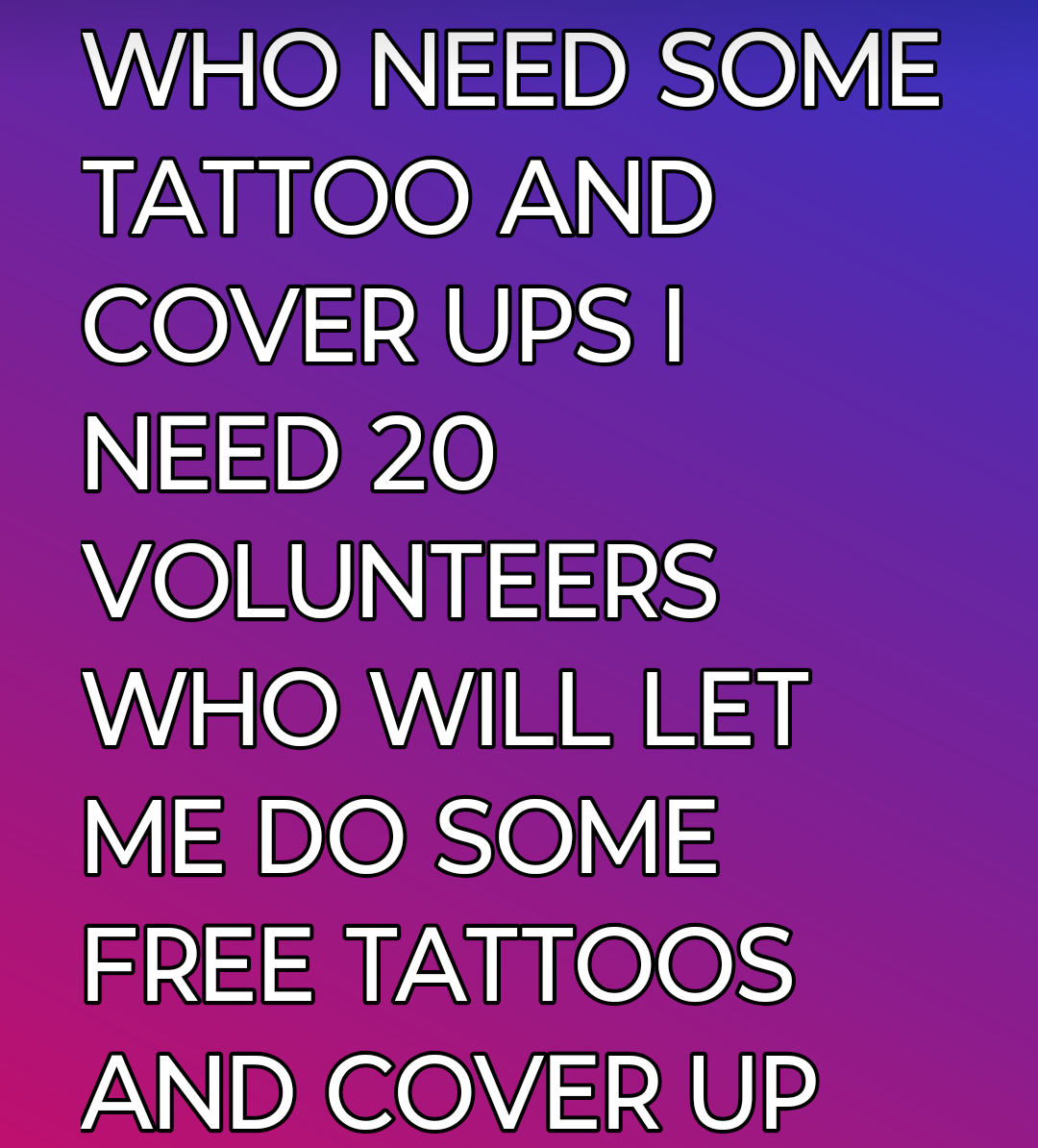 💉 The “tattoo volunteer” deposit scam is not new. Scammers have been recycling identical posts across Facebook, Instagram, TikTok, and other platforms, pretending to be tattoo artists offering free or discounted tattoos and cover-ups. They claim they need volunteers to promote their work and request a small “set-up” or “appointment” fee upfront. Once the payment is sent, the scammer disappears, and the promised tattoo never happens.
💉 The “tattoo volunteer” deposit scam is not new. Scammers have been recycling identical posts across Facebook, Instagram, TikTok, and other platforms, pretending to be tattoo artists offering free or discounted tattoos and cover-ups. They claim they need volunteers to promote their work and request a small “set-up” or “appointment” fee upfront. Once the payment is sent, the scammer disappears, and the promised tattoo never happens.
These scams can be harder to spot than they first appear. While some scam accounts are new, others may be stolen.
🎭 Some have hundreds or thousands of friends, real or fake
🌐 Some include professional-looking websites or social media pages
🕵️ Some are stolen profiles, using someone else’s photos and history to appear legitimate
🤖 Many accounts are run by bots and friended by other bots to boost legitimacy, giving the profile an appearance of credibility
📋 Scammers may harvest friends through these posts for future scams
The promise of a free or cheap tattoo is only the lure; the real goal is to collect deposits.
🌎 Similar Deposit and Advance-Fee Scams
Similar scams follow the same pattern: requesting money upfront for something that does not exist.
📦 Marketplace deposits: Fake sellers list electronics, furniture, or vehicles and request deposits to “hold” the item. Once payment is sent, they disappear
🏠 Rental deposits: Fraudsters advertise homes or apartments that do not exist or that they do not own. Victims send deposits and later discover the property is fake
🐾 Pet deposits: Scammers post photos of puppies, kittens, or exotic pets and request deposits to “reserve” them. The animals never arrive
💼 Job application and recruitment fees: Victims are asked to pay upfront for training, uniforms, or registration to secure a new job. Once paid, the employer disappears
💻 Online task and investment scams: Victims start with small online tasks, then are pressured to invest larger sums. Once money is sent, the scammers vanish
✈️ Travel and vacation scams: Fraudsters advertise discounted trips, hotels, or timeshares, asking for deposits. After payment, the trip is fake or the booking invalid
🏫 Tuition and scholarship scams: Victims pay fees for fake scholarships or educational programs
🛍️ Prepaid product scams: Scammers sell limited-edition products or tickets, request deposits, then disappear
🎁 Charity and donation scams: Fraudsters pose as charities and request donations, which are never used for the stated purpose
Even small deposits can generate significant profit when repeated against many victims worldwide. Many scams operate internationally, making prosecution difficult.
🕵️ Characteristics of Scam Profiles
🆕 Some accounts are brand new; others have long histories or professional-looking pages
👤 Many are stolen profiles, using someone else’s photos or posts
🤖 Bots often run accounts and are friended by other bots to boost legitimacy
🌐 Fake websites or social media pages are common
🚩 RED FLAGS TO SPOT SCAM PROFILES
🎭 Unrealistic Friend Counts – Hundreds or thousands of friends, many of which may be fake or bot accounts. Some may also have no friends
🤖 Bot Activity – Accounts run by bots and friended by other bots to appear legitimate. Posts are often random shares of generic scammy content
👤 Stolen Profiles – Photos, names, or posts may be copied from real people
✒️ Copy-Pasted Posts – Identical wording appearing across multiple regions or countries
💸 Upfront Payment Requests – Any request for deposits, “set-up fees,” or advance payments before verifying legitimacy
📸 Suspicious Images – Images that may appear elsewhere online when checked with reverse image search. Many are now using AI to create profile pictures.
⏱️ Pressure Tactics – Urgent calls to action like “Only today” or “Limited spots”
🛡️ How to Protect Yourself
❌ Never send deposits to individuals or businesses you cannot verify
🔍 Research profiles or businesses thoroughly, remembering some profiles are stolen or run by bots
📸 Use reverse image searches to check whether photos are stolen
🌐 Look for repeated wording across posts in different locations.
⌛ Be skeptical of urgent payment requests like “Only today” or “Limited spots.”
🛡️ Report suspicious activity to local authorities, online platforms, or dedicated scam-watch organizations
- Log in to post comments
